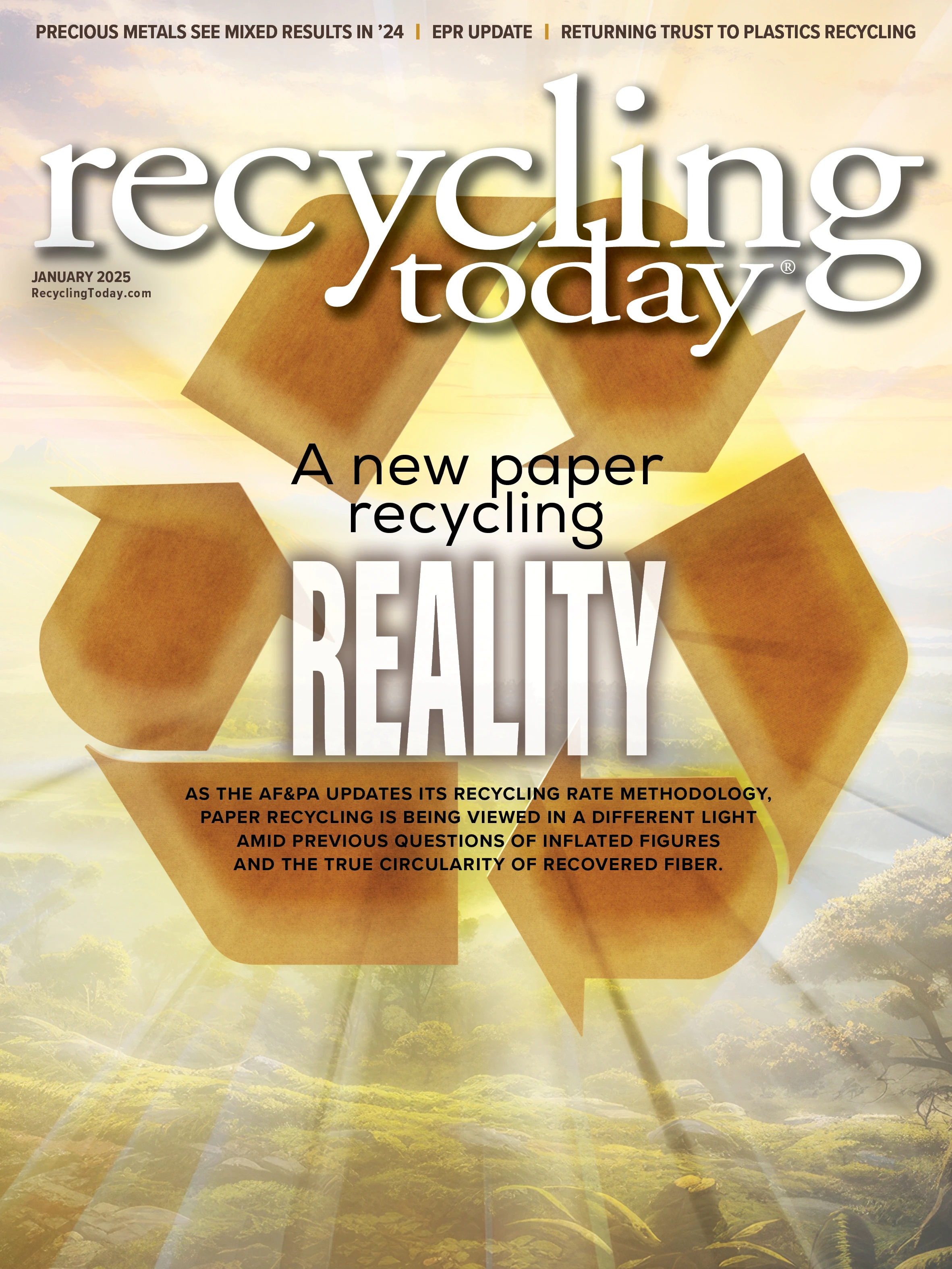Lower ferrous scrap bids from U.S. mills and disappointing offers from overseas buyers provided a fitting end to the 2024 recycled steel market.
In the first two weeks of December 2024, Davis Index reported recycled steel bids between $1 to $5 per ton lower than November for domestic or overseas shipments.
Using Pittsburgh-based MSA Inc.’s Raw Material Data Aggregation Service price for No. 2 shredded scrap as a yardstick, recycled steel gained value in just two out of 11 months between January and November 2024. Even those two monthly increases, however, measured just $11 and $2 per ton, respectively, giving processors little chance to register gains in inventory value.
“[A]pproximately 54 percent of U.S. exports of recycled products are traded through the potentially impacted ports.” – Adam Shaffer, Recycled Materials Association
In mid-December 2024, Davis Index reported prices for containerized ferrous scrap off the West Coast nearing a four-year low, selling for $303 per metric ton free alongside ship (FAS).
At the same time, shipments off the East Coast were one of the few bright spots in the U.S. market. Prices for heavy melting steel (HMS) from the East Coast to Turkey rose to $11 per ton in early December of last year.That rise could be because of a genuine spike in demand for U.S. scrap at Turkish mills, or it could be an inventory buildup hedge heading into the potential strike by the International Longshoremen’s Association (ILA) in mid-January.
As of mid-December of last year, ILA Executive Vice President Dennis A. Dagget had cited resistance to automation as a negotiation sticking point. Dagget met with President-elect Donald Trump in an attempt to bring him to the ILA’s side.
Recyclers are among those seeking to avoid the labor-management dispute.
In early December of last year, the Washington-based Recycled Materials Association (ReMA) was among 260 groups that urged the ILA and United States Maritime Alliance (USMX) to return to the negotiating table to reach an agreement before the current contract expires Jan. 15.

“Resolving this labor dispute is crucial to ensuring trade of recycled materials as approximately 54 percent of U.S. exports of recycled products are traded through the potentially impacted ports,” Adam Shaffer, ReMA assistant vice president of international trade and global affairs, told ReMA News in mid-December of last year.
Both within North America and beyond, major investments have been announced in electric arc furnace (EAF) steelmaking. The good news bodes well for the recycled steel market, but not every headline was positive in late 2024.
Global steelmaker ArcelorMittal, which has announced blast furnace-to-EAF conversion projects in Europe and Canada, has tapped the brakes on two projects in France. Several other EAF projects in Europe are installing adjacent direct-reduced iron (DRI) facilities, likely reducing their dependence on scrap.
In North America, Charlotte, North Carolina-based recycled-content steelmaker Nucor Corp. and Irving, Texas-based steel producer CMC each are building EAF mills in West Virginia, and the Algoma Steel conversion project in Ontario is on track for an early 2025 startup.
That additional capacity should provide upward price pressure on recycled steel.
One recycled-content EAF mill in the U.S. showing signs of trouble is the former Keystone Wire & Rod mill near Peoria, Illinois. That facility, now owned by the Liberty Steel business unit of the financially troubled GFG Alliance, reportedly idled its melt shop in November 2024.

Although there is no guarantee it will follow the same path, the former Georgetown Steel melt shop in South Carolina—also owned by Liberty—has not operated since before the United Kingdom-based GFG Alliance ran into financial troubles attached to the Greensill Capital collapse in Europe.
Business owners in the steel and recycling sectors in the U.S. enter 2025 focused on whether decisions from the newly installed Trump administration will affect demand and pricing for steel and ferrous scrap.
In his first term, Trump placed tariffs on inbound steel meant to protect domestic producers and provide preferred access to fulfill domestic demand for finished and semifinished steel.
During his 2024 campaign, he targeted China, Canada and Mexico for double-digit tariffs on anything they ship to the U.S., including steel.
Metals producers and steel recyclers have little interaction with China. However, ferrous scrap, semifinished and finished steel flow across the Canadian and Mexican borders, promising possible disruption if Trump stands by his pledge.

Explore the January 2025 Issue
Check out more from this issue and find your next story to read.
Latest from Recycling Today
- Orion ramping up Rocky Mountain Steel rail line
- Proposed bill would provide ‘regulatory clarity’ for chemical recycling
- Alberta Ag-Plastic pilot program continues, expands with renewed funding
- ReMA urges open intra-North American scrap trade
- Axium awarded by regional organization
- Update: China to introduce steel export quotas
- Thyssenkrupp idles capacity in Europe
- Phoenix Technologies closes Ohio rPET facility





